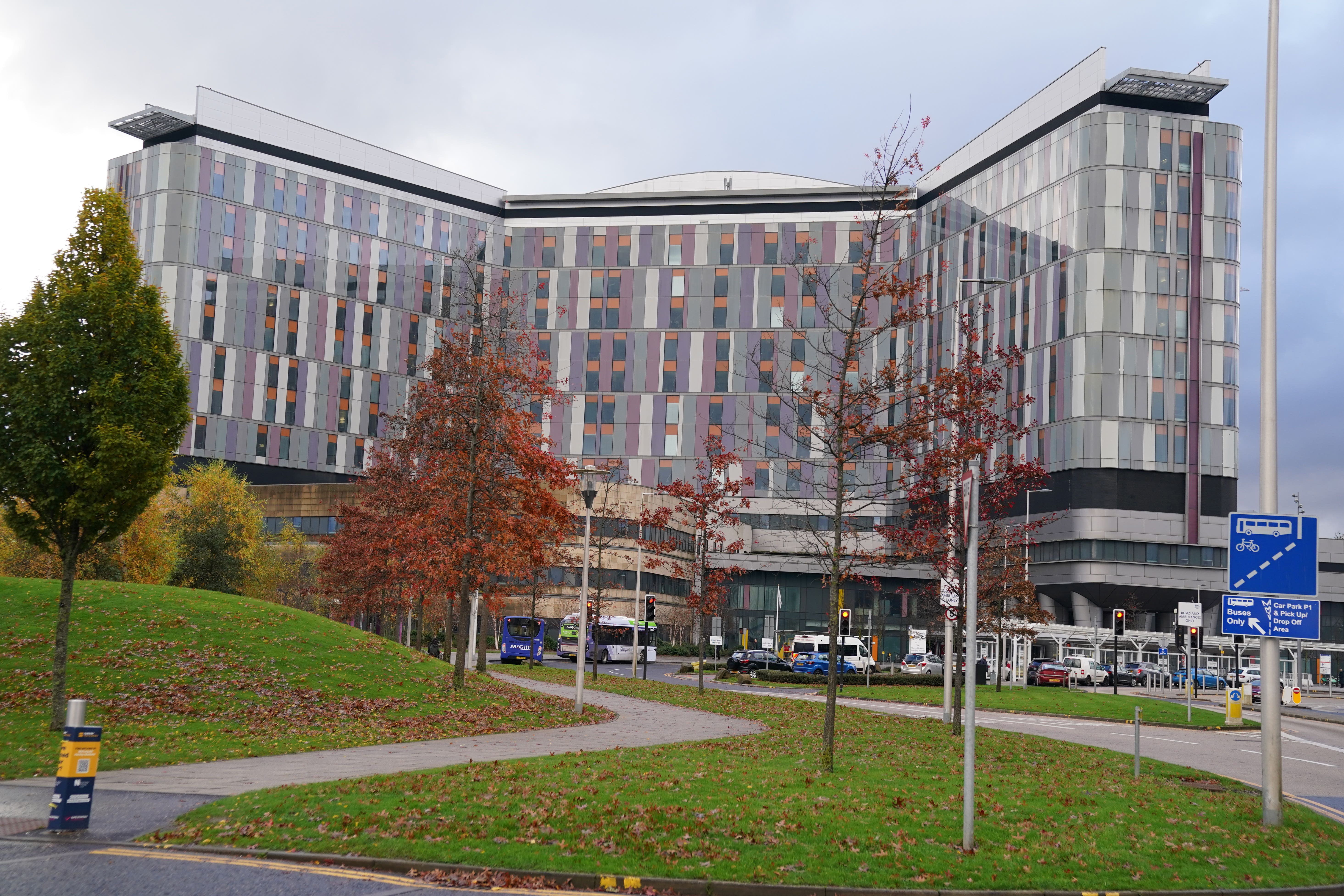Expert felt ‘nudged’ by health board to change infections report, inquiry told
Professor Mike Stevens said he felt NHS Greater Glasgow and Clyde staff tried to ‘turn the screw’ after he produced his draft findings.

A paediatric oncologist has told an inquiry he felt staff from a health board tried to “turn the screw” on him to change a report on infections caught by children in one of their hospitals.
Professor Mike Stevens said NHS Greater Glasgow and Clyde (NHSGGC) staff suggested he came to the “wrong conclusion” about infections arising at the Queen Elizabeth University Hospital (QEUH) campus.
He led a case review which investigated 118 episodes of bacterial infection in 85 children who received treatment for blood disease, cancer or related conditions at the Royal Hospital for Children.
His review identified significant failings in infection prevention and control, governance and risk management, and found a third of infections were “most likely” linked to its environment.
Prof Stevens was giving evidence on Wednesday to the Scottish Hospitals Inquiry, which is examining the construction of the QEUH campus after concerns were raised about patient safety.
He told the inquiry he remembered attending a meeting with several representatives of NHSGGC where he encountered “quite a lot of push-back” on some of his draft report’s findings.
It made me feel this was a further nudge to us to move our final written report in the direction they wished it to go
The inquiry heard chief executive Jane Grant, medical director Jennifer Armstrong and deputy medical director Scott Davidson were among those from the board who were present.
“It was a slightly tense meeting,” Prof Stevens said. “I had prepared a little statement about what we had been tasked to do.
“It was a couple of minutes, it wasn’t a long speech. Then most of the team where given the opportunity to say something.
“Jennifer Armstrong was, I think, pretty forceful with us about reaching the wrong conclusion. That is shorthand for saying she was quite challenging to what we had produced.
“There was a comment about the death of patient – they didn’t feel we had adequately assessed the situation.
“They gave an alternative scenario, even though their own death certificate included reference to the infection.
“There was quite a lot of push-back about the criticism we had given about infection control management.”
Prof Stevens went on to recall he was “very surprised” to receive a follow-up letter from the health board the very next day repeating many of the criticisms levelled at his draft report.
Pressed by senior counsel to the inquiry Fred Mackintosh KC on how he felt after reading the letter, he replied: “I just felt rather cross. I felt there was no necessity to this letter.
“I felt there was – rightly or wrongly, and this is highly subjective – it made me feel this was a further nudge to us to move our final written report in the direction they wished it to go.”
“I just felt that – and I could be challenged on this – but all I can report is how it made me feel.
“It made me feel someone is trying to turn the screw on me.”
The inquiry, being held before Lord Brodie in Edinburgh, continues.
Bookmark popover
Removed from bookmarks